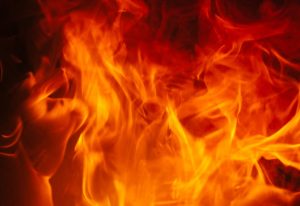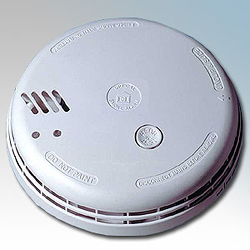Whether you live in a flat or a house, most fires in the home are caused by accidents and the effects can be devastating.
The London Fire Brigade have a fantastic two-page Home Fire Safety Guide which you can print out and keep handy, but meantime, here are our top five tips on how to reduce the chances of a fire starting in your home and keep you, your family and your property safe.
Smoke Alarms
The Fire Brigade says that every home should have at least one working smoke alarm on each floor. They’re available from supermarkets and DIY shops, easy to install and affordable. It’s essential that you buy one with a current British Standards or European (CE) safety mark, that you install it properly and test it regularly (once a week is best).
Carbon Monoxide Alarms
Carbon Monoxide (CO) is a highly poisonous gas, which can kill quickly. You can’t see or smell it, but symptoms include dizziness, headaches, nausea, collapse and loss of consciousness. It’s released when a gas appliance has been badly fitted or is broken, or if your chimney or vent is blocked. It’s always worth getting a Gas Safe registered engineer to install or repair your gas appliances, but having carbon monoxide alarms in the kitchen where appliances like your cooker and boiler are, and the living room, if you have a gas fire, is essential.
Remember: All CO alarms should carry the current British Standards or European (CE) safety mark.
Smoking
Whether it’s having a cigarette in bed, leaving matches near children or lighting up around flammable materials, smoking is the most common cause of death by fire in the home. Find out how to prevent smoking related fires here.
Heaters, Fires & Naked Flames
If you have an open fire you need to ensure it’s properly maintained. Keep the flues clean and have the chimney swept regularly by a specialist. Use a fireguard and make sure the fire’s out when you turn in for the night. If you’re using a portable heater, make sure it’s kept well away from clothes and furniture. Secure the heater properly and keep it upright, even when it’s switched off or in storage. Always follow the manufacturer’s guidelines when it comes to using your heater and do make sure it’s cooled down completely before you move it.
Tea lights are lovely but any candles you use in your home need to be placed on a stable, heat resistant surface so they won’t get knocked over. Keep them away from clothes, curtains and furniture, well out of reach of children and pets, and do make sure you put any naked flames out before you leave the room.
Electrics
To avoid electrical fires make sure all your appliances carry the British or European (CE) safety mark. Keep every appliance clean and in good working order. Unplug them when they’re not in use and be aware that some, like hair straighteners, get really hot. Always leave them to cool on a heatproof surface.
Remember: Keep to one plug per socket, and if you buy an appliance without a plug, always check you’re using the right fuse.
If you’re renting, your landlord is responsible for ensuring a Gas Safe registered engineer carries out an annual safety check on all gas appliances, and for maintaining all electrical wiring and ensuring each appliance is safe to use. But whether you’re renting or you own your property, it’s essential you have an escape plan, should the worst happen. Under the 2004 Housing Act, if you’re renting, your landlord must ensure there’s an adequate escape route. If you’re a homeowner, you’re responsible.
If you’d like to find out what your escape plan should be, the London Fire Brigade website has a Home Risk Assessment service. Simply complete the online form and it’ll assess the fire safety in your home and offer you a number of precautions you can take. These range from simple smoke alarms to total compartment application systems, like sprinklers.
You can also book a free home visit. These are aimed at older people or those with mobility, vision or hearing impairments, people accessing mental health services or those at a higher risk of a fire in the home due to alcohol or drug use. The Fire Brigade will assess your home and offer advice on how to make it safer. If it’s appropriate, they’ll also fit you a smoke alarm. You can find out more and book an appointment here.
Remember: If there’s a fire in your home, it’s best to get out, stay out and call 999. Never try to fight it yourself.

